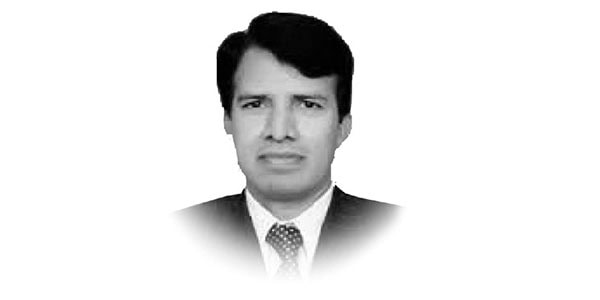Narrative building for peaceful coexistence
In Islam peace is eternal constitution which can be achieved through process of acceptability for each other and mutual co-existence.
As a religion of humanity, the broad message of Islam is to “live a peaceful life based on theism, justice and purity. ” With these Islamic principles, peace can be promoted and advanced through an all-inclusive approach and a policy of mutual co-existence where all human beings have no option but to accept and tolerate each other cheerfully.
This can be pursued for Pakistan and entire humanity through a framework of narrative building.
This framing into narrative building had become essentially significant since the society in general has been immensely linked with militancy, extremism and terrorism especially after the unfortunate incident of 9/11.
Through narrative building and later practicing it, the existing imprint about the Pakistani society can be reconstructed based on core human values where peace should be the central idea, attained through tolerance, spirituality, justice, equality, and responsibility to observe rights and obligations.
Through peace building narratives, Pakistani society can be transformed as a peace loving and all inclusive body.
Unfortunately, despite being the ideological state, there could not be developed a unanimous and national narrative for over seven decades now.
In the process we lost too much, even half of Pakistan was lost but remained short of any one national narrative.
Rather, in the last two decades there emerged multiple faultlines in Pakistani society in the form of; sectarianism, sub-nationalism, provincialism and ethnicity.
This is a dangerous trend, which can put Pakistani society into chaos and infighting.
We can reduce these tendencies by studying the history of the Pakistan Movement where our forefathers thought of a separate homeland for the Muslims of the subcontinent and then stood by their demand until they achieved Pakistan despite very strong opposition from Hindu leadership and colonial rulers.
This central and dominant factor behind this historical achievement of Muslims was the ideology of Pakistan; the Islam and its dynamism with a message of peace for entire humanity.
The ideological bases of Pakistan were secured and adopted in the form of Objectives Resolution, which constitute the preamble of the state’s constitution.
While considering the narrative building for Pakistani society, there is a need to logically trace the origin of Pakistan and create an academic way-out in the light of what forefathers of the country have conceived the future status of the state.
In fact, it is going back to the basics through a practical orientation.Every human being, every community and every state has a narrative. We too had a narrative but deviated from it over the years.
As a national narrative, Paigham-e-Pakistan contest and reject the ideology of extremism, militancy and terrorism.
Neither its basis nor the contemporary state of Pakistan can afford any deviation or departure from the spiritual and ideological basis of Pakistan.
There is a need for the reconstruction of thoughts for an inclusive society in Pakistan.
The democratic values, freedom, equality and social justice are the foundations for true interpretation towards reconstruction of an inclusive society and rejection of terrorist’s narratives.
Radicalization, extremism and terrorism have no place in the ideology of Pakistan and the wider view of Islam and Muslims which put into debate the religious diversity, interfaith harmony and protection of Non-Muslims in Pakistan.
Quaid’s statement of August 11, 1947 provides a clear base for this; “You are free to go to your temples, you are free to go to your mosques or to any other place of worship in this state of Pakistan.
You may belong to any religion or caste or creed that has nothing to do with the business of the State.
New narratives, for the promotion of inter-faith harmony are the need of hour for Pakistan.
The concept should be unity in diversity and Article 36 of the constitution of Pakistan provides safeguard to the legitimate rights and interests of minorities in all respects.
Religious based peace building, conflict resolution and reconciliation is another area for discussion.
Peace means absence of wars, conflicts and any sort of violence through acts like; harmony, justice, equity since all restores relationships and establish justice.
All divine religions stress on peace and provide the best mechanism for conflict resolution and reconciliation among wider human beings.
There is a need to create the spirit of tolerance and acceptance among the wider Pakistani society.
Acceptance indicates a greater sense of reception and freedom for others to be themselves whereas tolerance is the ability and willingness to endure the existence of opinions and behaviour someone dislike and disagree with.
Qur’an says: “Let there be no compulsion in religion: Truth stands out clear from error: whoever rejects evil and believes in Allah has grasped the most trustworthy handhold that never breaks.
At another place the Quran says; “For you is your religion, and for me is my religion.
” Indeed, in Pakistan we need both tolerance and acceptance to become a diverse society and dynamic nation.
Whereas the violence in all its forms and format is rejected by Islam, there is a need to end the use of religion for political gains which is being projected internationally as political Islam or the Islamophobia.
In fact, radicalization, extremism and terrorism are the anti-thesis of Islam which forms the ideology of Pakistan.
Therefore let’s go back to basics and reconstruct our thoughts in the light of Quran and Sunnah with the intent to logically discard the misperceptions about Islam and Muslims.
The academics and scholars of Pakistan must take a lead role in explaining to international scholars and civilized society as what is essence of Islam and how this Holy religion is being misinterpreted for the political, economic and strategic interests of some great powers and vested communities.
— The writer is Professor of Politics and IR at International Islamic University, Islamabad.










